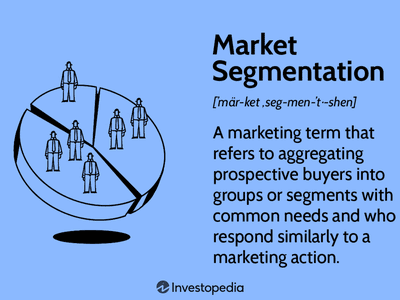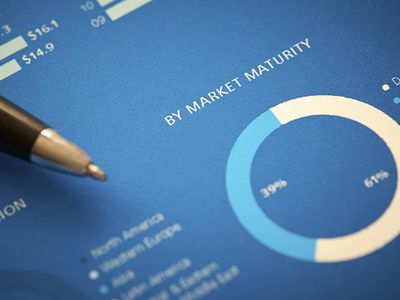Welcome to the world of competitive intelligence! In this article, we will explore the definition, types, and uses of competitive intelligence, a valuable tool that helps businesses understand their competitive environment and make informed decisions. Competitive intelligence involves gathering, analyzing, and utilizing information on competitors, customers, and market factors to gain a competitive advantage. We will delve into how competitive intelligence works, the different types of intelligence, and the importance of ethical and thorough research. So, get ready to enhance your knowledge and discover how competitive intelligence can drive success in the business world.
What Is Competitive Intelligence?
Definition
Competitive intelligence, also known as corporate intelligence, is the process of gathering, analyzing, and utilizing information collected on competitors, customers, and other market factors that contribute to a business’s competitive advantage. It involves studying the market landscape to understand the opportunities and challenges and using the information to create effective business practices.
Importance
Competitive intelligence is crucial because it helps businesses gain a deeper understanding of their competitive environment. By gathering and analyzing information on competitors, customers, and market trends, businesses can identify their strengths and weaknesses. This knowledge allows them to make informed decisions about product development, marketing strategies, and overall business operations. Competitive intelligence provides organizations with a competitive edge by helping them stay one step ahead of their rivals.
Key Takeaways
- Competitive intelligence enables businesses to gather and utilize information that affects their competitive advantage.
- Analyzing collected data helps businesses develop effective and efficient business practices.
- Competitive intelligence can be classified as tactical intelligence, which is shorter-term, and strategic intelligence, which focuses on longer-term issues.

This image is property of www.investopedia.com.
How Competitive Intelligence Works
Definition and Purpose
Competitive intelligence involves gathering actionable information from various published and unpublished sources. It is important to collect this information ethically and efficiently. The purpose of competitive intelligence is to gain a detailed understanding of the marketplace and anticipate and respond to challenges and problems before they arise. It goes beyond the basic concept of “know your enemy” and aims to uncover the nuances of competitors’ business plans, target markets, and customer base.
Gathering Information
To conduct competitive intelligence effectively, businesses need to gather information from diverse sources. These sources include the news media, customer and competitor interviews, industry experts, trade shows and conferences, government records, and public filings. While some information can be found online, competitive intelligence goes beyond conducting simple internet searches. It involves investigating stakeholders, key distributors, suppliers, customers, and competitors to gain a comprehensive understanding of the market landscape.
Different Perspectives on Competitive Intelligence
Within an organization, competitive intelligence can mean different things to different people and departments. For a sales representative, it may involve tactical advice on bidding for a lucrative contract. For top management, it may involve cultivating unique marketing insights to gain market share against a formidable competitor. The nature of competitive intelligence varies depending on the industry, circumstances, and other factors. The goal is to help make better-informed decisions, identify risks and opportunities, and enhance organizational performance.

This image is property of www.investopedia.com.
Types of Competitive Intelligence
Tactical Intelligence
Tactical intelligence focuses on shorter-term goals and aims to provide input on capturing market share or increasing revenues. It involves analyzing data and information to gain a competitive edge in the market. Tactical intelligence provides businesses with insights and strategies that can help them achieve immediate goals and respond to rapidly changing market conditions.
Strategic Intelligence
Strategic intelligence, on the other hand, is more focused on longer-term issues. It involves identifying key risks and opportunities facing the enterprise and developing strategies to address them. Strategic intelligence helps businesses create long-term plans and make informed decisions about resource allocation, product development, and market positioning.
Difference from Corporate Espionage
Competitive intelligence should not be confused with corporate or industrial espionage. Competitive intelligence relies on legal and ethical methods to gather information, whereas corporate espionage involves illegal and unethical practices. Competitive intelligence aims to gain insights and advantage through comprehensive data analysis and information gathering, without resorting to unethical tactics.

This image is property of www.investopedia.com.
Special Considerations
Data Sources for Competitive Intelligence
While some information can be found online, competitive intelligence involves gathering data and information from various sources beyond the internet. It includes news media, industry experts, customer and competitor interviews, trade shows and conferences, government records, and public filings. Competitive intelligence professionals go beyond easily accessible information and dig deeper to uncover insights that give organizations a competitive edge.
Importance of Investigating Stakeholders
As part of competitive intelligence, it is crucial to investigate the full breadth of a company’s stakeholders, key distributors, and suppliers, as well as customers and competitors. Understanding the relationships and dynamics within the market ecosystem helps businesses make better-informed decisions. By analyzing the impact of various stakeholders, businesses can identify potential risks and opportunities and adjust their strategies accordingly.
The Society of Competitive Intelligence Professionals
The growing importance of competitive intelligence is evident in the establishment of the Society of Competitive Intelligence Professionals (SCIP) in 1986. This global nonprofit organization brings together business experts from various industries, academia, and government. SCIP hosts conferences and summits where members can share research, decision-support tools, and advance collective analytical capabilities. The society plays a crucial role in promoting the importance of competitive intelligence and fostering collaboration among professionals in the field.

This image is property of www.investopedia.com.
Article Sources
- Cision PR Newswire
- Open a New Bank Account Advertiser Disclosure
Competitive intelligence is a valuable tool for businesses to stay competitive in their respective markets. By gathering and analyzing information on competitors, customers, and market trends, businesses can gain insights that inform their decision-making processes. Whether it’s tactical intelligence for short-term goals or strategic intelligence for long-term planning, competitive intelligence empowers businesses to make informed decisions and stay ahead of their rivals. Through ethical information gathering practices and a comprehensive understanding of stakeholders, businesses can unlock their competitive advantage and drive success.
Source: https://www.investopedia.com/terms/c/competitive-intelligence.asp




